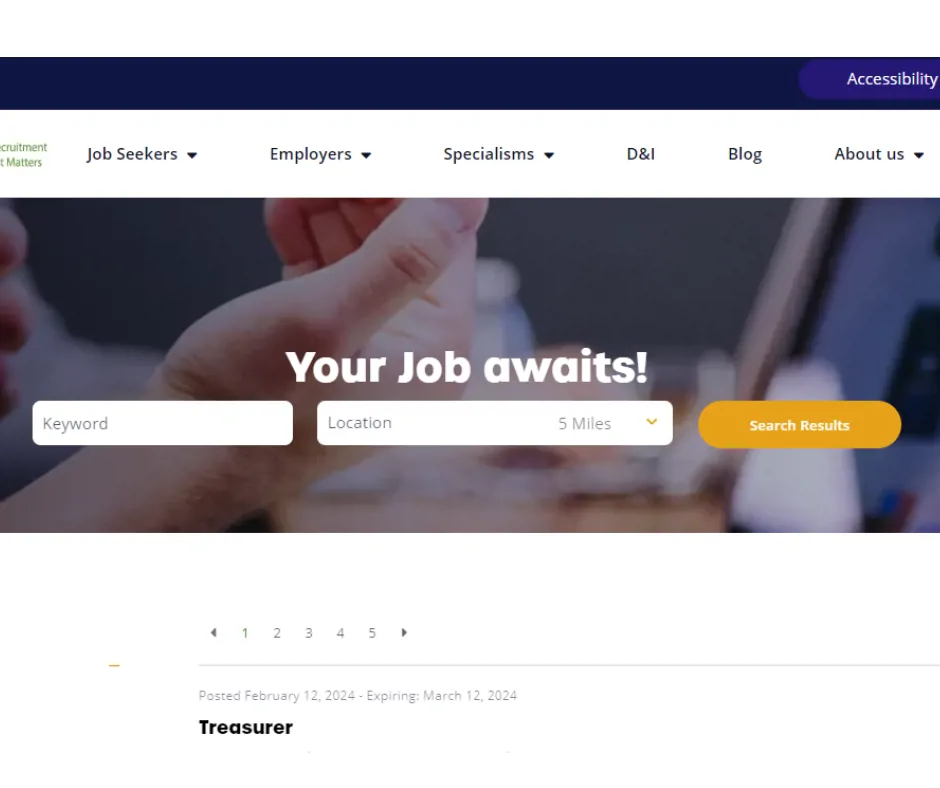Quick CV Dropoff
Want to hear about the latest non-profit and public sector opportunities as soon as they become available? Upload your CV below and a member of our team will be in touch.
Our job seeker hub contains all the latest resources, advice and videos to help you in the search for your new role and reach your career goals.
If you have any questions about these resources please contact us on 020 7198 6000 or email info@tpp.co.uk, alternatively to arrange a call, contact us using the form below.
If you have a disability or health condition, you can get support in work, through Access to Work, find out more here.
A good CV and application will give you the best possible chance of securing an interview or a new job with a prospective employer. Here you can find our latest advice to support your job search.

Want to keep track of your job applications. Download our useful application tracker below.

A good CV will give you the best possible chance of securing an interview or a new job with a prospective employer.
You can also read our blog on
Your CV questions answered & essential advice for job seekers
Read more

When applying for a job in the non-profit sector, employers will often request you submit a supporting statement. Here is our advice on what to include in your supporting statement.
Read more
You asked the following questions at our Candidate Career Workshop.
Many job seekers, especially those with extensive experience, worry about the length of their CV.
The general consensus is that a CV should be concise yet comprehensive. For more experienced candidates, it's crucial to highlight key achievements and relevant experience without overwhelming the reader.
Aim for a CV that is no longer than two to three pages ideally, focusing on the most recent and relevant roles first.
The most important point to consider here is how relevant your previous roles are for the role you are applying for. We would always suggest that if the experience you gained in a previous role is relevant to the role you are applying for, you should include it. We suggest keeping your CV to 2-3 pages and usually more detail is included in your most recent roles.
It is worth noting that for certain roles in particular sectors or settings, for example, social care or clinical, you may be required to outline your full work history in your CV.
Yes definitely, we encourage you to share information about career breaks on their CV. Very often these breaks are legitimate reasons for not working at that given time of your life and we believe many valuable transferable skills and lived experiences come from career breaks for reason such as, starting a family, travelling, volunteering, or caring for a relative to name just a few. LinkedIn have also recently included a new feature that allows people to represent a career break within their LinkedIn profile, with 13 options.
Absolutely! Tailoring your CV to match the job description is essential. Recruiters will advise that you review the person specification and highlight relevant skills and experiences. This not only shows that you've invested time in the application but also demonstrates how well you fit the role.
Be honest and clearly but concisely state the reason for the gap, whether it was due to personal reasons, study/education or travel.
Highlight positive activities you engaged in and transferable skills you may have gained that could be relevant for the role you are applying for. Framing this as time spent on investing in yourself, supporting others and gaining new skills in the process, is a good way to position a period of time not in employment.
Whether you are applying for a job directly or through a third party such as a recruitment agency, it is commonly recognised that details of referees can be requested from the applicants.
There is no need to include details of referees at the end of your CV.
At our Careers Workshop on how to ace an interview, the following questions were asked:
One of the most effective ways to make your CV stand out is by showcasing your achievements. For each role, include measurable results, outcomes and successes. This could be anything from improving a process, saving money, handling high-profile projects, or receiving awards.
Achievements differentiate you from other candidates and show the value you can bring to your role next role.
Tailoring your CV is crucial. Use the job description as a guide and ensure your CV highlights the skills and experiences that match the role. Avoid copying the job description verbatim; instead, use similar language and terminology to show alignment.
The job description contains information and clues about what the employer is looking for. Match your experience to their requirements and highlight achievements that align with the role. This shows that you understand the job and are a good fit.
When mentioning successes, always provide measurable results. This adds credibility to your claims and gives potential employers a clear picture of your capabilities.
For example, instead of saying "increased participation of challenge events" you could say "increased participation of challenge events by 20% compared to the previous year."
The layout and format of your CV are important. A well-structured CV is easier to read and more likely to catch the hirers eye. Use bullet points, clear headings, and a professional font.
Also, think about the order of information – key relevant experience should always be at the top.
Put yourself in the shoes of the person reviewing your CV. What would their initial thoughts be? Ensure your CV is a visual aid that helps them see your relevant experience quickly.
Interviews can be daunting, so we have compiled lots of resources to help you perform your best and secure your desired role.

Even the most prepared can stumble during an interview or forget their key achievements, weaknesses etc. Therefore we have created a guide to creating your own cheat sheet.
Read more

Congratulations for getting to the second stage! Here are our 4 top tips to help you prepare.
Read more

Here are some helpful tips that will aid you in presenting yourself in the best possible way via video.
Read more

Competency-based (or behavioural) interviews are based on the premise that past behaviour is the best predictor of future behaviour.
Read more
Once a month, our specialist team answer your burning career questions to help you in reaching your career goals.

Volunteering opportunities come in many different guises, from long-term regular commitments to one-off individual or group projects. Read about the benefits of volunteering for your career and more here.

We know you may be unsure about what is involved and how to become a Trustee, so we’ve compiled some frequently asked questions below.

We advertise a number of volunteer roles for charities and non-profit organisations. View their latest opportunities here.